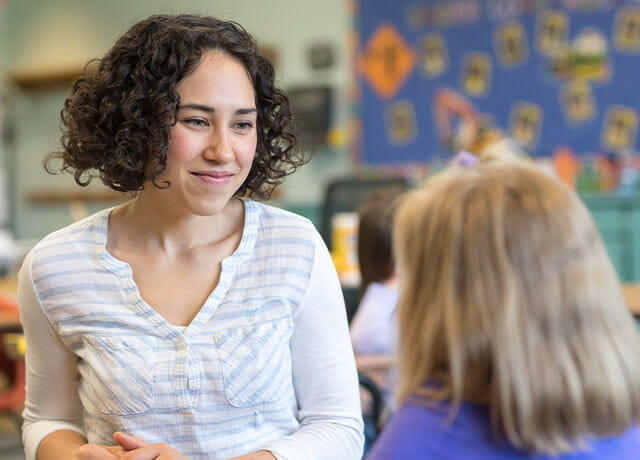Why Choose Walden?
Program Details
Curriculum
Completion Requirements
- 60 quarter credits
- Foundation course (5 qtr. cr.)
- Core courses (40 qtr. cr.)
- Specialization courses (10 qtr. cr.)
- Capstone course (5 qtr. cr.)
View the COMPLETE CURRICULUM PLAN.
Time to completion will vary by student, depending on individual progress and credits transferred, if applicable. For a personalized estimate of the number of your transfer credits that Walden would accept, call an Enrollment Specialist at 1-866-492-5336.
Admission Requirements
Program Admission Considerations: A bachelor's degree or higher.
General Admission Requirements: Completed online application and transcripts. Please note that the materials you are required to submit may vary depending on the academic program to which you apply. More information for international applicants.
| Curriculum Component | Requirements | Cost | amount |
|---|---|---|---|
| Tuition | 60 quarter credit hours | $380 per quarter hour | $22,800 |
| Program Fee | Per quarter | $175 | $1,050 |
| $23,850* | |||
| BELIEVE & ACHIEVE SCHOLARSHIP YOUR TUITION | -$3,800 $20,050* | ||
*Tuition reflects the minimum time to completion. Time to completion varies by student, depending on individual progress and credits transferred, if applicable. Tuition and time to complete may be reduced if transfer credits are accepted, or if you receive grants, scholarships or other tuition reductions. Walden may accept up to 25 transfer credits. For a personalized estimate of the number of your transfer credits that Walden would accept, call an Enrollment Specialist at 844-483-7976.
Tuition and fees are subject to change. Books and materials are not included and may cost between $1,000 and $1,400.
Program Outcomes
Master the Mechanics of Teaching and Learning
In Walden’s master’s in early childhood education program, you’ll explore how children’s brains develop and how early experiences affect learning and social emotional development. Gain strategies to advocate for the infusion of play and creativity into early childhood teaching and learning. Apply your skills in field experiences in varied areas of expertise, from infants and toddlers to children in grades P–3.
Learning Outcomes
- Explain practices that promote healthy child development in diverse populations.
- Evaluate inquiry-based child-centered practices that promote play, creativity, and individual growth, exploration, and discovery.
- Develop meaningful learning experiences that are responsive to the individual strengths and needs of children.
- Analyze assessment processes used to promote positive outcomes for every child.
- Analyze effective partnerships that foster children’s healthy development and learning.
- Analyze current research to inform best practices in early childhood education.
- Evaluate one’s professional growth as a leader and advocate in the early childhood field.
- Create opportunities for positive social change as a leader and advocate within the field of early childhood.
Career Outlook
A knowledgeable, skilled, and passionate leader is essential to developing a high-quality early childhood education program or facility. With an early childhood administration and management degree, you’ll have the skills and confidence to establish your own early childhood business or lead a program in your school or community. Create a safe, nurturing environment in which children can thrive and set the stage for bright and successful futures.
This specialization can prepare you to pursue career options such as:1
- Preschool director
- Owner of early learning center
- Program administrator of early learning program
- Public policy advocate
This specialization can prepare you to work in settings such as:
- Preschools and early learning programs
- Nonprofits specializing in young children and families
- Human and social services
- District / public education settings
Career options may require additional experience, training, or other factors beyond the successful completion of this degree program.
1Source: Labor Insights (Burning Glass Technologies). Industry Analysis, Active selections "nationwide" AND last 12 months” AND “Education: Master’s degree (specified)” AND “Program of study: Early Childhood Education and Teaching (specified)“ AND “Included Postings: All Available Jobs)” Retrieved October 2020.








